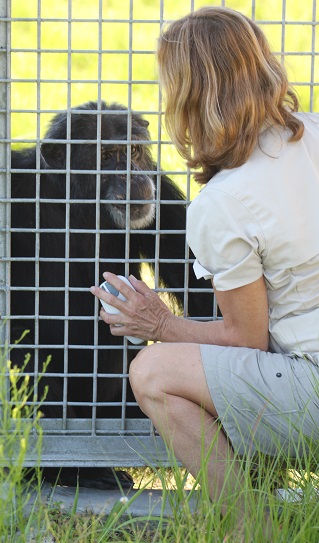 JR is a 33-year-old chimpanzee that has been enjoying retirement in sunny Florida. Save The Chimps, a sanctuary in Fort Pierce, Florida, rescued JR from a roadside zoo over two years ago. Over the last decade, 300 other chimpanzees have been brought to the sanctuary from their previous lives in biomedical research, entertainment or the pet trade. But JR had a problem.
JR is a 33-year-old chimpanzee that has been enjoying retirement in sunny Florida. Save The Chimps, a sanctuary in Fort Pierce, Florida, rescued JR from a roadside zoo over two years ago. Over the last decade, 300 other chimpanzees have been brought to the sanctuary from their previous lives in biomedical research, entertainment or the pet trade. But JR had a problem.
During physical exams under anesthesia, his veterinarians saw a persistent irregular heart beat on his ECG. JR showed no outward signs of illness but a correct diagnosis of cardiovascular disease was essential in preventing fatal arrhythmias or life threatening clots. First, an echocardiogram was performed by a veterinary specialist and showed normal measurements and no underlying structural heart disease. Wanting to determine how often the arrhythmia occurred while he was awake, a wireless cardiac monitor used in human patients was implanted beneath JR’s skin just above his heart. His ECG was recorded over six months and sent to Dr. Ted Friehling, a human electrophysiology cardiologist from Fairfax, Virginia who flew to Florida specifically to help JR. Dr. Friehling determined that the chimp suffered from a potentially fatal atrial fibrillation with a rapid ventricular rate.
JR is being treated with drugs used in human medicine for the same condition: amiodarone, metoprolol and baby aspirin, that he takes happily crushed and mixed with grape juice. The implanted monitor helps his veterinarians follow his response to treatment. Dr. Bezner, the senior veterinarian at Save The Chimps, feels this information is very important not only for JR, but for all great apes in captivity as fatal arrhythmias are a major cause of death of male chimpanzees, gorillas, orangutans and bonobos.

